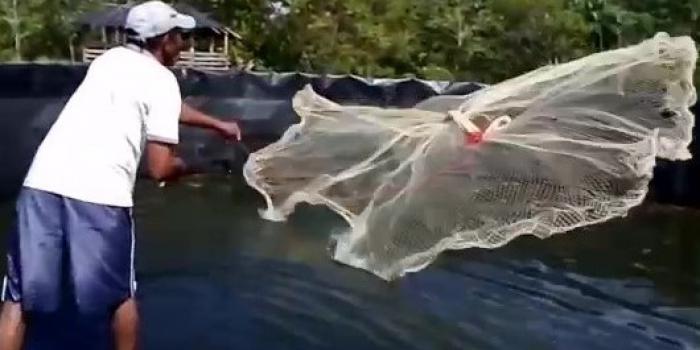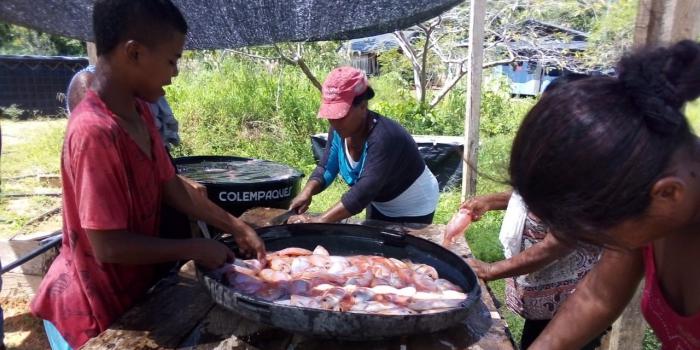
Afro community of El Bagre achieves third fish harvest in 2020
Three community councils in this Antioquia municipality overcome the armed conflict with productive projects and social and traditional recovery.


The inhabitants of Villagrande community council, located in the jurisdiction of the municipality of El Bagre (Antioquia), achieved the third fish harvest this year to improve their food security and income generation, as part of the Comprehensive Collective Repair Plan (PIRC) with the Victims Unit.
"We already have about 400 kilos of tilapia harvested and we are going to do a new planting trying to advance with learning, improving this project and taking advantage of the benefits that the territory gives us and that unconditional support of the Unit", said Oiden Julio Vergara, representative of this Afro-Colombian community.
This fish farming project is the result of the investment of 189 million pesos in administrative compensation, one of the 22 remedial measures agreed by the entity with the community councils of Villagrande, La Esperanza and Chaparrosa.
With this productive unit, in addition to the endowments of clothing supplies (flat and filleting machines, cutting tables, fabrics) for groups of women and furniture to schools, the recovery of their traditions and ancestral knowledge such as medicinal plants, around 250 families rebuild their ways of life to overcome the damage of the armed conflict.
Communities in recovery
According to Wilson Córdoba, director of the Victims Unit in Antioquia, "this collective reparation plan is implemented with an ethnic differential approach to improve the living conditions of this population, redress the violated rights and recover those community practices and Afro-Colombian identity that they were lost by violence, which should never be repeated”.
Oiden Julio, community leader, recognizes that the reparative measures "contribute to repair, mitigate and compensate the damages caused by the conflict and the reconstruction of the social network that had been broken in our communities".
Between 1995 and 2010, the population of this area of Antioquia suffered forced displacement, massacres, selective assassinations, forced disappearances and confinements due to the confrontation among illegal armed groups.
The Victims Unit has registered more than 700 subjects of collective reparation in Colombia, 22 of them in Antioquia with plans in implementation and measures such as psychosocial care, productive projects, rehabilitation or construction of community infrastructure (community booths, parks, bridges, roads sidewalks, sports fields, tourist sites), endowments to educational institutions, health posts, houses of culture and recovery of traditions.
(End/JCM/CMC/LMY)






